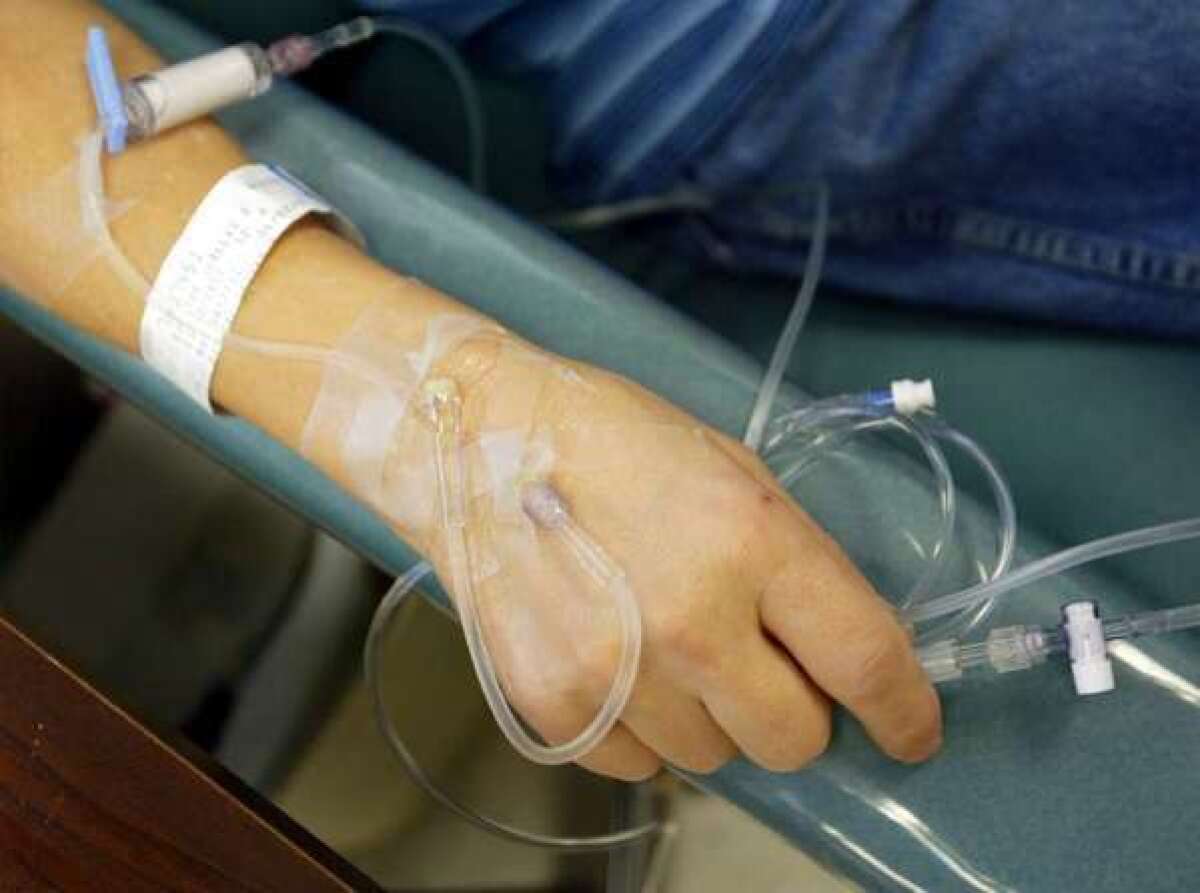Directors of top cancer centers shouldn’t take money from drug companies

- Share via
Academic cancer centers are exalted for producing cutting-edge research and providing superior cancer care. Doctors and the public look to them for unbiased evidence on which cancer treatments lead to meaningful improvements in survival and quality of life — and which do not. Cancer center patients expect treatment recommendations that are driven solely by this science.
But there’s a lot of money in cancer, and that means other influences can come into play. Cancer therapeutics is now the pharmaceutical industry’s largest market and its primary focus for new drug development. Not surprisingly, industry money has infiltrated academic institutions. Last fall, the chief medical officer at Memorial Sloan Kettering Cancer Center resigned following the revelation that he had failed to disclose nearly $3.5 million in industry payments over four years.
On Monday, we published a research letter in JAMA Internal Medicine summarizing industry payments to the 53 physicians who direct major academic cancer centers across the United States. These are the nation’s most prominent cancer centers, those designated by the National Cancer Institute in recognition of their scientific leadership.
We were surprised by what we found: Slightly over half of the physician cancer center directors received no industry payments in 2017. That’s good news.
Of course, that means slightly under half did receive industry payments. To be fair, payments to many directors fell under the category of chump change – a meal, a night in a hotel, an airline ticket — well under the $5,000 threshold the NCI uses to define a significant financial interest. About a third of all directors, however, were above this threshold – typically receiving payments for research and consulting. A few were well above it (one had payments exceeding $2 million).
Industry payment data are available because of the Sunshine Act — a part of the Affordable Care Act that mandates that drug and device manufacturers report all payments made to any American physician. The data are public and available to anyone with an internet connection.
Go ahead and look up your oncologist — or your orthopedic surgeon. Let the sun shine in.
There is an inherent tension between the interests of industry and those of the public in medical care. Industry has an interest in developing new products and promoting them – in an effort to maximize price and volume. The public has an interest in the unbiased evaluation of new products — in an effort to determine their potential benefits and their associated harms.
Drug and device manufacturers should innovate, not evaluate their “innovations.” Yet most clinical trials evaluating new products are funded by industry, giving them considerable input in the design and conduct of research. That’s a problem.
The reason is simple: Industry-funded evaluations are more likely to reach pro-industry conclusions. There is a considerable body of research attesting to this fact. Industry funding has been shown to distort medical research through a variety of mechanisms that all work in the same direction: overstating the value of new products. One study of studies showed that the odds of a pro-industry conclusion were more than three times higher in industry-funded evaluations. Another concluded, “Systematic bias favors products which are made by the company funding the research.”
Well, duh. But sometimes it’s important to document the obvious.
If industry funding can skew academic physicians’ research, imagine the problems with consulting fees, stock options and corporate board compensation. The conflicting interests of product promotion vs. unbiased evaluation will always persist. That’s why it is important to separate the two.
NCI-designated cancer centers have a central role in shaping cancer care in the United States. They receive more than $300 million in federal funding to support their core infrastructure — plus millions more in public dollars for specific research projects. Their directors should be free of industry payments in order to serve the public interest in unbiased evaluation of cancer therapies — and to be in a position to make disinterested judgments about the conflicts of researchers on their faculties.
The good news is that half of all NCI physician cancer center directors appear to have already come to this conclusion. Let’s hope the others follow suit.
H. Gilbert Welch is a physician and senior researcher in the Center for Surgery and Public Health at the Brigham and Women’s Hospital in Boston. He is the author of “Less Medicine, More Health: 7 Assumptions That Drive Too Much Medical Care.” David Carr is a physician and molecular genetics pathology fellow in the department of pathology at UC San Diego.
More to Read
A cure for the common opinion
Get thought-provoking perspectives with our weekly newsletter.
You may occasionally receive promotional content from the Los Angeles Times.









